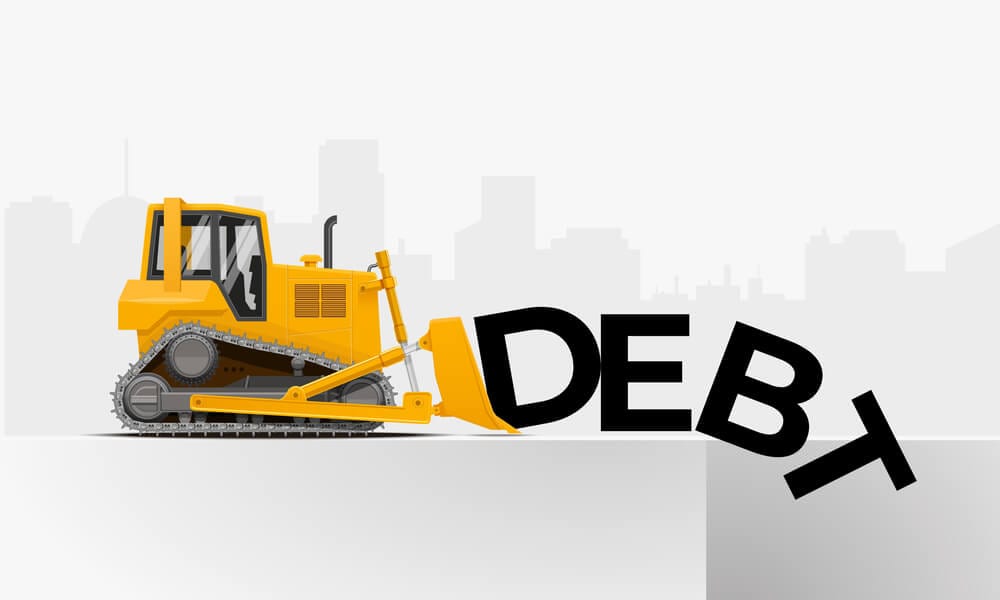Get Out of Debt Alternatives
If your monthly debt payments, excluding mortgage or rent, exceed 20% of your income, your debts are a serious problem requiring action. Here are some basic alternatives to get out of debt caused by excessive credit card usage or unexpected and expensive medical bills:
- Credit Counseling
- The Do-It-Yourself Approach
- Debt Management Program
- Debt Consolidation
- Bankruptcy
Credit Counseling
Nonprofit credit counseling from an NFCC member agency, like One Vision International Solutions, can help you pay off your credit card debt faster and at lower interest rates. You can get started online or call OneVision directly. When you call a certified credit counselor, this professional will ask you a series of questions in order to identify the root cause of your financial distress. Before they can recommend a solution to your problem, they must have a thorough understanding of your debt situation. Next, the counselor will conduct a financial analysis by completing a monthly spending plan and budget. This will provide an insight into how much money you are spending each month versus your total monthly income and help determine which solution meets your individual needs.
The Do-It-Yourself Approach
After conducting your financial analysis and budget, your counselor might suggest the do-it-yourself approach, which will include completing self-help educational programs on budgeting, money management, and credit. By going it alone, you may be negotiating with your creditors, paying off debts with the highest interest rates first, obtaining a second job, cutting up your credit cards and lowering your expenses. While this way is certainly very effective, it is important to note that this requires strong will and self-discipline to follow this approach through completion.
When negotiating with creditors, you will find that some are willing to negotiate lower payments or interest rates, or waive late charges and other fees, because they realize that it’s better to receive some of the money owed than none of it. But you will have to ask yourself if you have the ability and temperament to conduct difficult, time-consuming negotiations alone.
Debt Management Program (DMP)
The credit counselor may suggest a debt management program, in which the counselor works directly with creditors on your behalf as well as provide you with additional education, guidance, and motivation to make sure you stick with your plan and pay down your debt. You will send a single payment each month to OneVision, and we then pay the appropriate amount to each creditor, on-time and consistently.
While debt management services may save you money by working with creditors to lower interest rates, they typically do not negotiate with creditors to pay less than the total principal amount owed. This is often referred to as Debt and is rarely an option recommended by a certified credit counselor except in very unique situations.
Debt Consolidation
In a typical debt consolidation, you consolidate your existing debts and mortgage payment into one, larger mortgage payment, sometimes at a lower interest rate. You take out a loan, often using your home as collateral, the lender sends you a check and you pay off your creditors. But don’t fall behind—you could lose your home!
If you have a habit of buying on credit and carrying large balances on your credit cards, debt consolidation won’t fix your underlying spending problem. Also, you remain solely responsible for paying your own bills and negotiating with creditors.
Bankruptcy
Filing for bankruptcy should only be considered as an absolute last resort. Bankruptcy is a court action that stops lawsuits and any other attempts by creditors or collection agencies to collect from you. However, it comes with a high cost—it generally stays on your credit report for a full 10 years, causing extreme difficulty in using credit to obtain cars, home or other loans and can even restrict you from certain types of employment. Bankruptcy should never be thought of as a “quick” or “free” way to get out of debt, as it can completely destroy your credit worthiness for a very long time.
Chapter 7 bankruptcy discharges virtually all of your consumer debts but does not eliminate secured debt, so you could still lose your home if you fall behind in your mortgage payments. You also will be required to pay such debts as student loans, alimony, child support, income taxes, and legal fines.
Chapter 13 bankruptcy is used in special situations, primarily to allow the filer to keep his/her home. A court-appointed trustee oversees a strict repayment plan to pay off your debts during a period of three to five years.
Although bankruptcy may fix your short-term problems, because it stays on your credit report for so long it should only be used in extreme situations. Many people who file bankruptcy make the mistake of doing so without fully exploring their options, and never realize they have other, more viable choices that will allow them to preserve their credit standing.
Bottom line:
Know that you have options for getting out of debt, and explore them fully. The key is finding the right solution for you.
Other Options
The alternatives mentioned above are only some of the possible solutions to reduce or eliminate debt. Unfortunately, the best way to discover the most effective way to get help is not through reading a book or an article, but by obtaining assistance from someone trained in handling difficult debt problems. That is why it is critical that if you are suffering from overwhelming debt that you contact a certified credit counselor right away. By working one-on-one with a counselor, you’ll be able to determine the best plan that addresses your concerns and is the most appropriate solution for your situation.
Everyone at One Vision International Solutions hopes you find the help you are looking for. We stand ready to help you discover the solution that is right for you.

